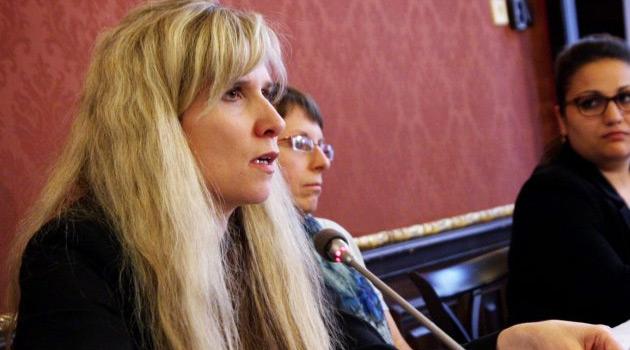Czech Constitutional Court receives motion to abolish inclusion in amendment to Schools Act

The Czech Constitutional Court has received a proposal for the abolition of the planned inclusion that has been anchored in an amendment to the Schools Act adopted last year. As of 1 September this year, children with mild mental disability are to be gradually included into the classes of mainstream primary schools and are to have special conditions for their instruction provided there.
The proposal to abolish inclusion was filed by attorney Richard Novák, who represents the parents of nine pupils and an educator at the Institute for Social Care in the Kociánka quarter of Brno who is dedicated to working with disabled children. "We claim that the introduction of inclusion, i.e., the combination of children without any health limitations and children with mild mental disability, who frequently include autistic schoolchildren, in the same classroom will be a big problem and will be more harmful than helpful to the disabled," the attorney told the Czech News Agency today.
Czech Education Minister Kateřina Valachová (Czech Social Democratic Party – ČSSD) is defending inclusion. Recently she met with the parents of children living with disabilities at the Kociánka institute and did her best to convince them that the planned changes will be gradual in nature and that the parents themselves will be the ones to decide whether to enroll their children into mainstream classrooms.
Novák emphasized to the Czech News Agency that inclusion has not been properly tested in the Czech Republic and that it is unknown whether it will actually be of benefit to the disabled. The parents proposing the abolition of inclusion are of the opinion that even having assistants will not aid in equalizing the differences between children with disabilities and the rest of their schoolmates.
"The vision of children coming together, liking each other, and respecting other children with whatever kind of disability is in order. Nevertheless, the parents are concerned that for children with mild mental disability this will lead to the opposite effect, i.e., to their being excluded from the collective by the other children," the attorney said.
In the Czech Republic approximately 13 000 children live with mild mental disability. Many of them have dysgraphia or dyslexia, which can slow down their instruction.
Despite these difficulties, 3 300 children are already enrolled into classes at mainstream primary schools today. Most of the rest of the schoolchildren with mild mental disorders attend one of 14 "practical primary schools" in the Czech Republic, where teachers aid them in dealing with instruction despite their limitations.
The aim of inclusion is to involve children with mild mental disability, exceptionally gifted children, and schoolchildren with other limitations in the collectives of children attending mainstream primary schools. Instruction must be adapted to their needs.
Assistants and new school aids should help the children deal with various difficulties, differences and medical restrictions. After 10 years of discussion, the Czech Government has been counting on introducing inclusion into the schools as of September this year.
The plan has sparked stormy debates and also concerns among some parents as to how their progeny will deal with this transition. That is why the Education Minister ultimately decided that inclusion will be gradually introduced and allocated two school years during which to create these changes, i.e., from September 2016 until September 2018.